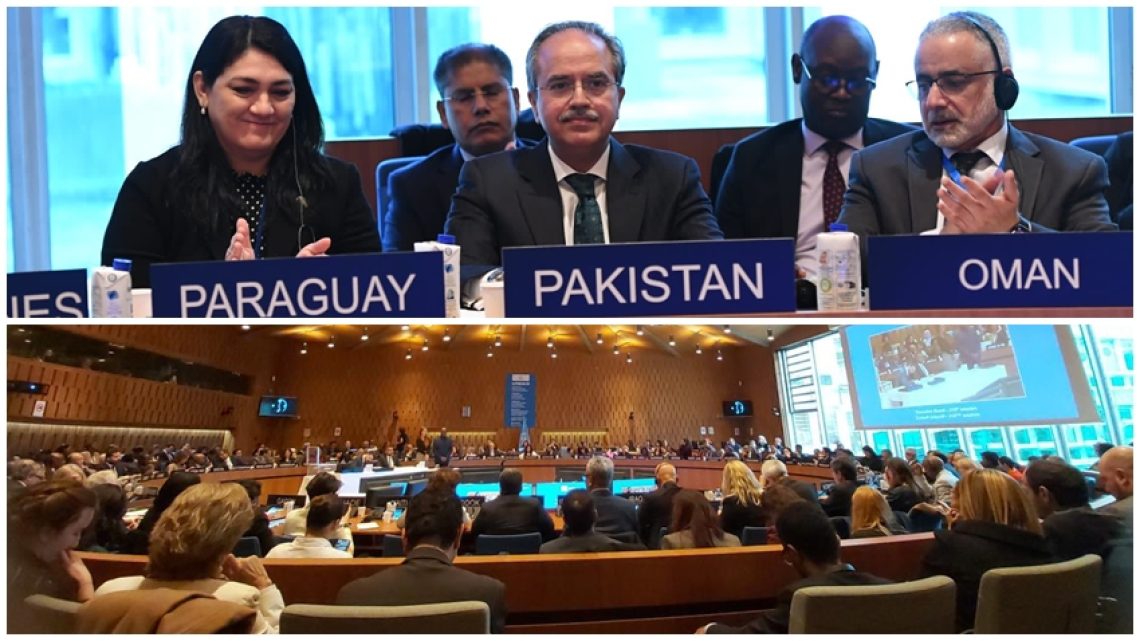
Pakistan’s Victory in UNESCO Election Raises Concerns for Indian Diplomacy
November 30, 2023In a recent election at the UNESCO executive board, Pakistan emerged victorious over India in the race for the position of vice chair. The Islamabad-backed candidate secured 38 votes, while India’s representative received 18 votes. This development, marking Pakistan’s election as the vice chair of the UNESCO Executive Board for 2023-2025 from the Asia Pacific Group, has sent ripples through the diplomatic corridors and is being perceived as a significant setback for Indian diplomats within the United Nations (UN).
The Ministry of External Affairs and the Human Resource Development ministry in the Indian government, responsible for handling UNESCO affairs and appointing the Indian representative in Paris, are reportedly assessing the reasons behind this defeat and analyzing its potential impact. Vishal Sharma, India’s representative at UNESCO and a political appointee, has been questioned about the factors contributing to India’s disappointing performance, where it failed to secure even half of the votes. The elections took place during the 218th session of the UNESCO executive board held in Paris last Friday.
In response to Pakistan’s victory, the foreign office of Pakistan issued a statement expressing gratitude to the executive board members and all UNESCO member states for their overwhelming support and trust in Pakistan’s candidature. The statement emphasized Pakistan’s commitment to fulfilling its responsibilities with a deep sense of credibility, honest dialogue, and mutual respect.
Contrastingly, Indian diplomats, who have traditionally taken pride in their victories at the UN and other international organizations, are now grappling with the implications of this defeat. A defeat by a substantial margin is viewed as a failure by the Indian establishment, prompting a need for introspection and strategic reassessment.
The significance of this electoral loss extends beyond the immediate context, as it raises questions about India’s influence and standing within international organizations. UNESCO, being a prominent global institution, plays a crucial role in shaping policies related to education, science, and culture. India’s inability to secure sufficient votes reflects a potential erosion of support for its diplomatic initiatives on the global stage.
This development also underscores the competitive dynamics between India and Pakistan in international forums. The UN, known for its complex geopolitical landscape, often becomes a battleground for influence and alliances. Pakistan’s success in securing the vice chair position indicates a diplomatic win that may enhance its visibility and influence within UNESCO, potentially affecting key decisions and policies.
The defeat prompted Indian authorities to reevaluate their diplomatic strategies and engagement at international platforms. The assessment by the Ministry of External Affairs and the Human Resource Development Ministry indicates a recognition of the need for a comprehensive understanding of the factors contributing to this setback. Whether it is a failure in diplomatic outreach, strategic miscalculations, or shifts in global alliances, a thorough analysis is imperative to rectify the shortcomings and strengthen India’s position in future international elections.
While India has faced setbacks in the past, the magnitude of this defeat at UNESCO raises concerns about the effectiveness of its current diplomatic approach. Diplomats and policymakers may need to re-examine their engagement strategies, prioritize key issues, and build stronger alliances to regain lost ground on the international stage.
In conclusion, Pakistan’s victory over India in the UNESCO vice chair election highlights the evolving dynamics of diplomatic competition on the global stage. As Indian authorities assess the aftermath and causes of this defeat, it becomes crucial for them to adapt and refine their diplomatic strategies to ensure a resilient and influential presence in international organizations. The outcome serves as a reminder of the fluid nature of global diplomacy and the importance of proactive and adaptive approaches to navigate the complexities of international relations.
